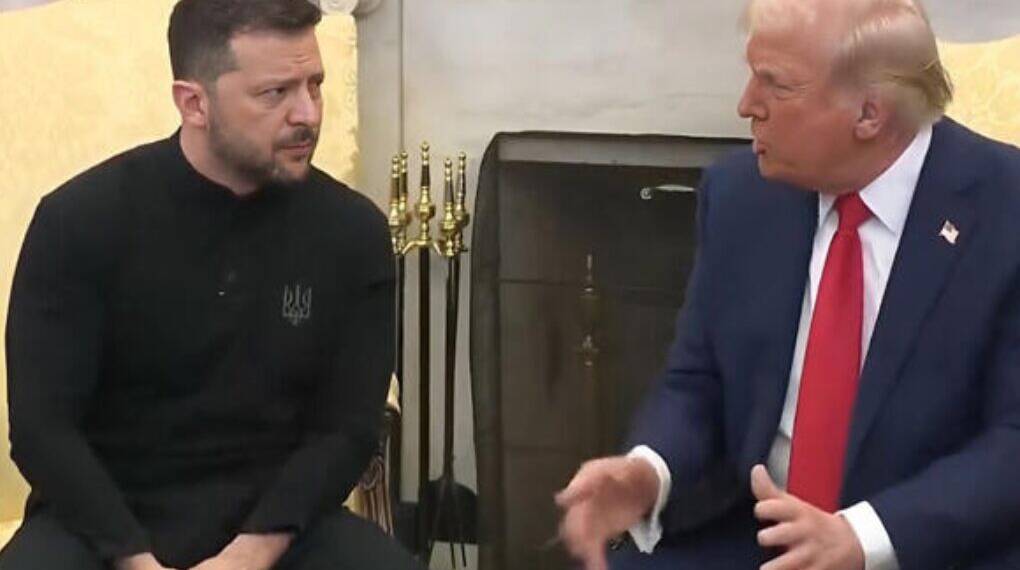In a stunning geopolitical development, Ukrainian President Volodymyr Zelenskyy has reached out to U.S. President Donald Trump, urging him to help broker peace in the ongoing Russia-Ukraine war. The call, which took place on Saturday, marked a dramatic turn in relations between the two leaders — and a potentially new chapter in efforts to end the devastating conflict that has raged since 2022.
According to reports, the conversation between the two leaders was described by Zelenskyy as “very positive and productive.” The discussion primarily focused on Ukraine’s air defence systems and ongoing Russian missile and drone strikes targeting critical infrastructure, especially energy facilities in the Odesa region.
The strikes have caused widespread blackouts, disrupting both civilian life and industrial output, and have once again exposed Ukraine’s vulnerability during the harsh winter months ahead.
Zelenskyy reportedly expressed gratitude to Washington for its ongoing support — including aid packages and military assistance — but also signaled a desire to move beyond mere defence. In a remarkable diplomatic gesture, he appealed to Trump to use his “deal-making skills” and experience in brokering peace in the Middle East to help bring an end to the bloodshed in Eastern Europe.
“If a war can be stopped in one region, then surely other wars can be stopped as well — including the Russian war,” Zelenskyy said in a statement following the call.
A Call for Peace — or Political Calculation?
The timing of the call is significant. Trump, who has publicly criticized the endless flow of U.S. aid to Ukraine, has often claimed he could “end the war in 24 hours” if given the chance. Many analysts believe Zelenskyy’s outreach may be a strategic attempt to build a bridge with the new U.S. administration, ensuring continued support while testing the waters for possible peace talks.
Their relationship has not always been smooth. In February, the two leaders clashed during a televised White House meeting, where Trump reportedly pressed Zelenskyy to commit to certain reforms and accountability measures before receiving new aid. However, relations have since thawed. Trump later described Zelenskyy as a “nice guy,” signaling a more pragmatic tone as global attention shifts toward resolving multiple crises simultaneously — from Gaza to Ukraine.
Ukraine’s Struggle for Survival
While diplomacy takes center stage, the situation on the ground remains dire. Russian forces have intensified attacks on Ukraine’s power grid and critical infrastructure, leaving cities like Kyiv and Odesa in the dark. Emergency crews continue to battle fires and repair damages amid freezing conditions and constant shelling.
The Ukrainian leader used his conversation with Trump to emphasize the urgent need for enhanced air defence systems, including Patriot missiles and modern radar networks. The U.S., under Trump’s leadership, has so far maintained a cautious but supportive stance — focusing on military assistance, logistical support, and coordination through NATO allies.
Trump’s Diplomatic Opportunity
For Trump, the call offers a unique opportunity to reshape global perception of his foreign policy approach. His earlier success in facilitating normalization agreements in the Middle East — the so-called “Abraham Accords” — was a hallmark of his previous tenure. Zelenskyy’s public appeal for Trump’s mediation seems to acknowledge that legacy and invite him to replicate that success on a much larger, more dangerous scale.
If Trump chooses to take on the challenge, it could signal the start of a new diplomatic initiative aimed at pressuring both Moscow and Kyiv toward a negotiated settlement. Such a move would not only redefine U.S.-Russia relations but also position Trump as a “global dealmaker” capable of achieving what European diplomats have failed to deliver for years — peace in Eastern Europe.
A War That Refuses to End
Despite repeated talks of ceasefire, the Russia-Ukraine war shows no signs of resolution. Moscow continues its offensive operations, while Kyiv relies heavily on Western assistance to maintain its resistance. The humanitarian cost has been staggering — tens of thousands killed, millions displaced, and entire cities reduced to rubble.
With Ukraine’s energy grid under relentless assault, the nation faces another harsh winter, and hopes for peace are dimming. Zelenskyy’s outreach to Trump may therefore represent a last-ditch attempt to open a diplomatic window, even if only symbolic for now.
Zelenskyy’s phone call to Trump is more than a courtesy — it’s a calculated gamble on diplomacy, image, and influence. By appealing to Trump’s sense of legacy and global stature, Zelenskyy is trying to turn political pragmatism into a potential peace strategy.
Whether Trump’s “Art of the Deal” can bring an end to one of the bloodiest wars of the 21st century remains uncertain. But one thing is clear: the world is watching closely — as two of the most unpredictable leaders on the planet test the boundaries of diplomacy, power, and possibility.







